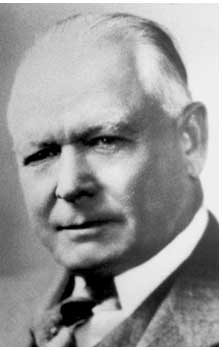
Nathan Mayo (1876-1960)
Inducted 1964
Highlights
Marion County Commissioner
Florida House of Representatives
Commissioner of Agriculture
Maturity Standards
State Marketing Board
Florida Citrus Code of 1949
Bio
Nathan Mayo was known as “Mr. Florida Agriculture” during his time. This title was fitting, as he spent an incredible 37 years as Florida’s Commissioner of Agriculture–what was then the longest tenure in the office’s history.
Born in Whitaker, North Carolina, in 1876, Nathan Mayor moved to Ocala, Florida, with his family at the age of ten. As a young man Mayo worked at the family’s Mayo-Lykes Store at Summerfield, just south of Ocala. Also near Summerfield, he later became part of the management group which oversaw a large farm, a citrus nursery, citrus groves, a cotton gin, and a turpentine business.
In 1913 Mayo became a Marion County Commissioner. Soon he was elected to the Florida House of Representatives, where he served from 1921-1923. In November of 1923, Governor Cary A. Hardee appointed Mayo to the position of Commissioner of Agriculture, making him the fourth man to serve in that position. In those days, while governors were subject to term limits, cabinet members were not. Also, incumbent cabinet members usually secured re-election with ease. Thus Mayo took over the position in 1923 and did not relinquish it until his death in 1960.
During his tenure, Mayo was known for serving with a great amount of devotion as well as having an ability to accomplish tasks efficiently. He also had a broad grasp of the problems which growers faced, as well as an ability to devise workable solutions. In 1925, Mayo initiated the enactment of higher maturity standards for fruit, while establishing citrus inspection in order to enforce the new standards. He also brought about the improvement of regulations for weights and measures. In 1929, Mayo established the State Marketing Board, which paved the way for the support of farmer’s markets. Mayo also devised mobile labs for inspection and scientific analysis of the various products and farm supplies. He also established agricultural road stations in support of the Florida Citrus Code of 1949, which established quality standards for grading.
Nathan Mayo died on April 14, 1960. During his tenure, the population of Florida had exploded from roughly one million in 1923 to five million in 1960. He was inducted into the Florida Citrus Hall of Fame in 1964, four years after his death.
